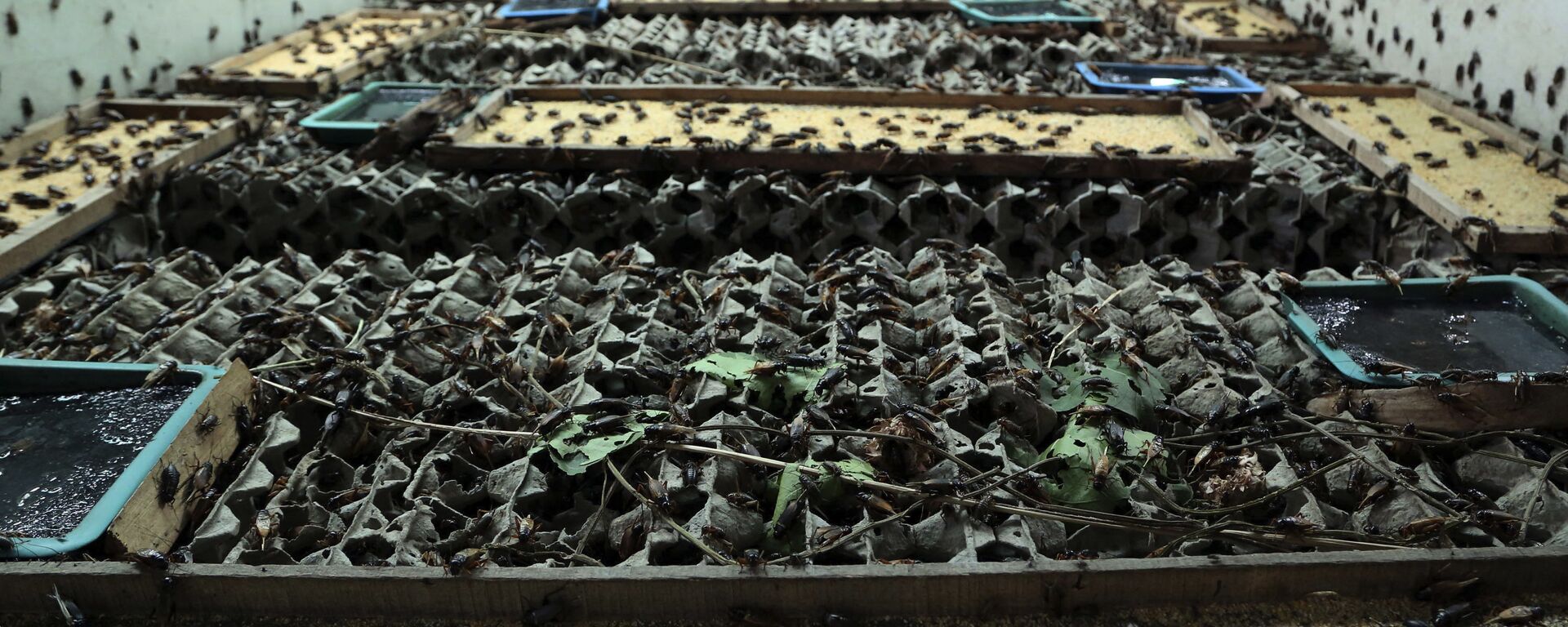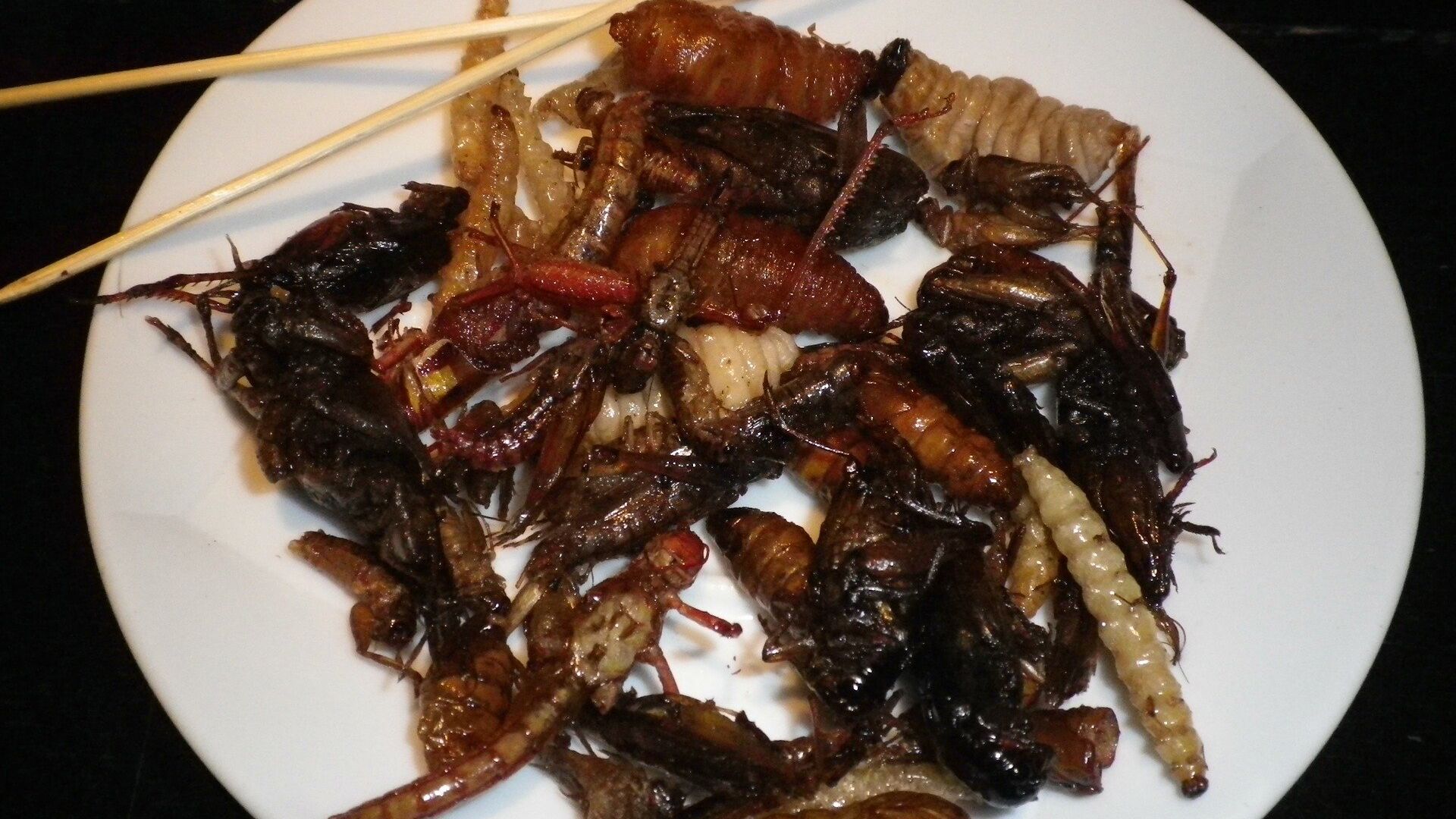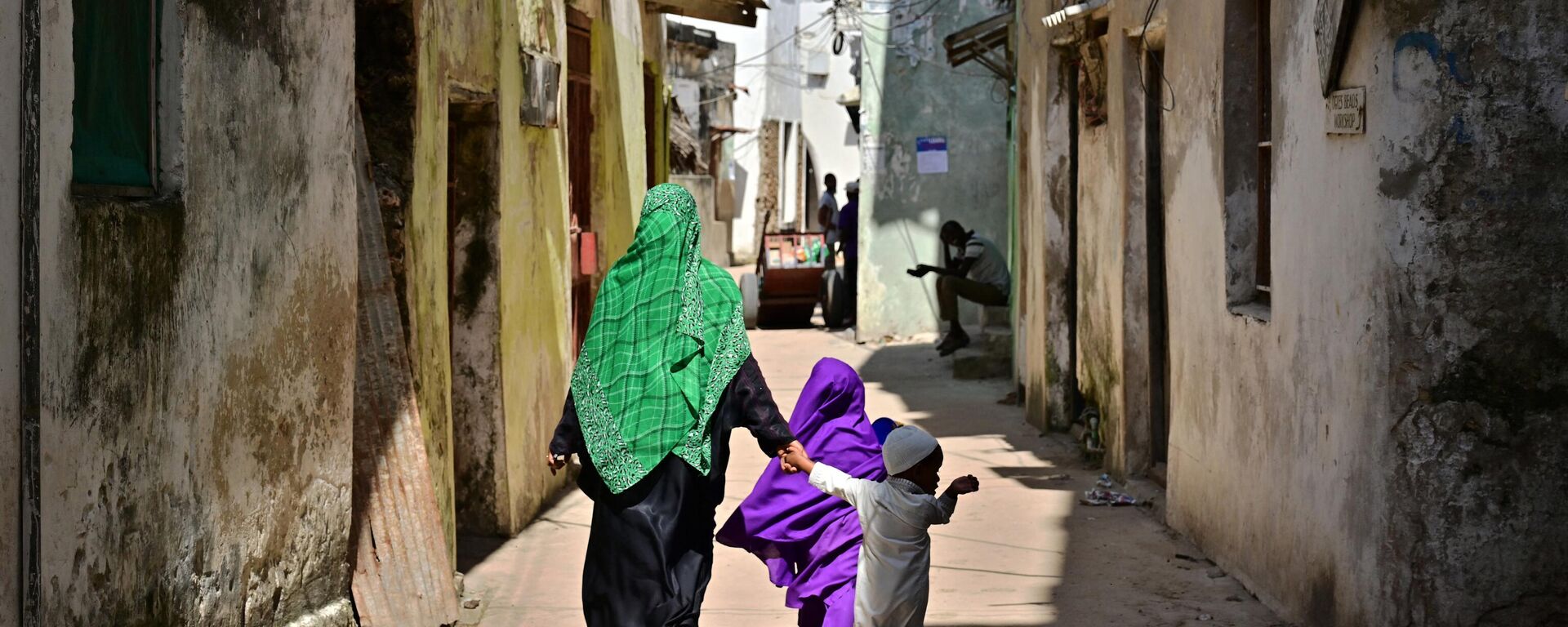https://sputnikglobe.com/20220922/insect-eating-projects-for-hunger-stricken-africa-reflect-wests-typical-cynicism-expert-says-1101083146.html
'Insect-Eating Projects' For Hunger-Stricken Africa Reflect West's Typical 'Cynicism,' Expert Says
'Insect-Eating Projects' For Hunger-Stricken Africa Reflect West's Typical 'Cynicism,' Expert Says
Sputnik International
Earlier, the UK government gave backing to two aid projects suggesting farming edible insects in certain African countries to tackle the enduring food crisis... 22.09.2022, Sputnik International
2022-09-22T11:23+0000
2022-09-22T11:23+0000
2022-11-26T11:16+0000
africa
insects
food crisis
vladimir putin
ukraine
vassily nebenzya
https://cdn1.img.sputnikglobe.com/img/105448/15/1054481569_0:180:1920:1260_1920x0_80_0_0_0a403995771dd14e1c6cbd60426d4191.jpg
Africa is currently facing its worst food crisis since 1945. Factors such as devastating droughts reportedly wrought by climate change, population growth, and regional conflicts have already resulted in massive food shortages across swathes of the continent. The raging global energy crisis with its skyrocketing costs, supply disruptions, and geopolitical circumstances, such as Western sanctions against Russia over its military operation in Ukraine, have all compounded the food crisis facing some of the countries in Africa.But suggesting farming edible insects to tackle the enduring challenges is mind-boggling cynicism, political scientist Alexander Dudchak believes.Earlier, the UK government announced it was throwing its support behind aid projects in the Democratic Republic of the Congo (DRC) and Zimbabwe, encouraging rural inhabitants to grow edible insects rich in vitamins and minerals. Thus, some 50,000 pounds ($57,590) were reportedly allocated to a project led by the Catholic Agency for Overseas Development (Cafod) and started in March 2022, according to The Guardian. It envisaged growing African caterpillars, migratory locusts, and black soldier flies. Listed among several initiatives supported by the UK Foreign, Commonwealth and Development Office, the project aims "to promote the production of insects for human food and for use in the manufacture of animal feeds." Cafod later clarified for the outlet that the insects will be farmed for feeding fish for further consumption by locals.Both immediate and long-term solutions to address the root causes should be offered to hard-hit regions, the economist underscored, recalling how the economies of Ethiopia and Somalia were destroyed in the 1990s when grain was taken out of those countries in exchange for supposed assistance, and supplies of GMO products.“This is the traditional approach of the West," Dudchak said, adding:He pointed to how Europe was building up its own grain stocks.Many African countries have sufficient resources to get out of poverty, but their natural wealth ends up in the hands of former colonizers, including France.‘Cynical Approach’London’s plan to promote insect farming in Africa was also slammed by Vasily Nebenzia, Russia's permanent representative to the UN, on September 17. At the Security Council, he called this World Bank-funded project a cynical approach “unlikely to solve the problem.” He also weighed in on claims by US and European authorities that anti-Russian sanctions do not affect the export of food and fertilizers from Russia, denouncing this as a lie. These measures do not allow Moscow to finance the United Nations World Food Program (WFP), he added.The Russian envoy also touched upon the UN-brokered initiative signed on July 22 by Russia, Ukraine, and Turkey to provide a humanitarian maritime corridor for ships with food and fertilizer exports from Black Sea ports. Three key Ukrainian ports — Odessa, Chernomorsk, and Yuzhnoe — were unblocked to resume exports. However, only one out of the 34 dry cargo ships from these ports went to Africa, Nebenzia pointed out.The Russian envoy also noted that Western countries' badly miscalculated sanctions against Russia are the cause of the global food security crisis, rather than the lack of exports from Ukraine.In May 2022, the African Union, a continental union consisting of 55 member states, warned of a "collateral impact" as the so-called collective West's unprecedented Russia sanctions hit food supplies following the start of Moscow’s special operation in Ukraine on February 24.The West has “betrayed” the poorest countries by breaking the agreements of the grain deal, but Russia will continue working on ensuring that food reaches global markets, Russian President Vladimir Putin told a session of the Eastern Economic Forum (EEF) in Vladivostok earlier in September.Putin denounced the “complicated situation when there are no direct sanctions against products, but there are restrictions related to logistics, ship charter, money transfer, insurance” as affecting the global market, causing prices to further skyrocket.
https://sputnikglobe.com/20220902/uk-funds-to-aid-projects-suggesting-african-countries-to-farm-insects-for-food-1100323818.html
https://sputnikglobe.com/20220803/fighting-africas-food-crisis-russia-strengthening-ties-and-stretching-helping-hand-to-kenya-1098069207.html
africa
ukraine
Sputnik International
feedback@sputniknews.com
+74956456601
MIA „Rosiya Segodnya“
2022
News
en_EN
Sputnik International
feedback@sputniknews.com
+74956456601
MIA „Rosiya Segodnya“
Sputnik International
feedback@sputniknews.com
+74956456601
MIA „Rosiya Segodnya“
insects, food crisis, vladimir putin, ukraine, vassily nebenzya
insects, food crisis, vladimir putin, ukraine, vassily nebenzya
'Insect-Eating Projects' For Hunger-Stricken Africa Reflect West's Typical 'Cynicism,' Expert Says
11:23 GMT 22.09.2022 (Updated: 11:16 GMT 26.11.2022) Earlier, the UK government gave backing to two aid projects suggesting farming edible insects in certain African countries to tackle the enduring food crisis facing that part of the world, driven by factors such as surging global food prices and fallout from sanctions set in place over Russia’s special operation in Ukraine.
Africa is currently facing its worst
food crisis since 1945. Factors such as devastating droughts reportedly wrought by climate change, population growth, and regional conflicts have already resulted in massive food shortages across swathes of the continent.
The raging global energy crisis with its skyrocketing costs, supply disruptions, and geopolitical circumstances, such as Western sanctions against Russia over its military operation in Ukraine, have all compounded the food crisis facing some of the countries in Africa.
But suggesting farming edible insects to tackle the enduring challenges is mind-boggling cynicism, political scientist Alexander Dudchak believes.
“This is not the first time that African countries have been treated as third-rate countries, as colonies. They have been persistently robbed all their lives,” the economist told Sputnik Afrique.
Earlier, the UK government announced it was throwing its support behind aid projects in the Democratic Republic of the Congo (DRC) and Zimbabwe, encouraging rural inhabitants to grow edible insects rich in vitamins and minerals. Thus, some 50,000 pounds ($57,590) were reportedly allocated to a project led by the Catholic Agency for Overseas Development (Cafod) and started in March 2022, according to The Guardian.
It envisaged growing African caterpillars, migratory locusts, and black soldier flies. Listed among several initiatives supported by the UK Foreign, Commonwealth and Development Office, the project aims "to promote the production of insects for human food and for use in the manufacture of animal feeds." Cafod later clarified for the outlet that the insects will be farmed for feeding fish for further consumption by locals.

2 September 2022, 20:01 GMT
Both immediate and long-term solutions to address the root causes should be offered to hard-hit regions, the economist underscored, recalling how the economies of Ethiopia and Somalia were destroyed in the 1990s when grain was taken out of those countries in exchange for supposed assistance, and supplies of GMO products.
“This is the traditional approach of the West," Dudchak said, adding:
“Yet now, when Moscow wants to send grain to African countries, the West is hindering it by not letting Russian ships carrying cereals leave ports, depriving Africa of food."
He pointed to how Europe was building up its own grain stocks.
“Maybe it will resell something to the African countries, but at exorbitant costs… Western countries are also cynically robbing Ukraine - they buy its food at dumping prices,” he added.
Many African countries have sufficient resources to get out of poverty, but their natural wealth ends up in the hands of former colonizers, including France.
"Gaddafi wanted to lift Africa out of poverty by developing a major development program. But the attempt to create a prosperous state was reduced to nothing by NATO," Alexander Dudchak recalled.
London’s plan to promote insect farming in Africa was also slammed by Vasily Nebenzia, Russia's permanent representative to the UN, on September 17. At the Security Council, he called this World Bank-funded project a cynical approach “unlikely to solve the problem.” He also weighed in on claims by US and European authorities that anti-Russian sanctions do not affect the
export of food and fertilizers from Russia, denouncing this as a lie. These measures do not allow Moscow to finance the United Nations World Food Program (WFP), he added.
The Russian envoy also touched upon the UN-brokered initiative signed on July 22 by Russia, Ukraine, and Turkey to provide a humanitarian maritime corridor for ships with food and fertilizer exports from Black Sea ports. Three key Ukrainian ports — Odessa, Chernomorsk, and Yuzhnoe — were unblocked to resume exports. However, only one out of the 34 dry cargo ships from these ports went to Africa, Nebenzia pointed out.
The Russian envoy also noted that Western countries' badly miscalculated sanctions against Russia are the cause of the global food security crisis, rather than the lack of exports from Ukraine.
In May 2022, the African Union, a continental union consisting of 55 member states, warned of a "collateral impact" as the so-called collective West's
unprecedented Russia sanctions hit food supplies following the start of Moscow’s special operation in Ukraine on February 24.
The West has “betrayed” the poorest countries by breaking the agreements of the
grain deal, but Russia will continue working on ensuring that food reaches global markets, Russian President Vladimir Putin told a session of the Eastern Economic Forum (EEF) in Vladivostok earlier in September.
Putin denounced the “complicated situation when there are no direct sanctions against products, but there are restrictions related to logistics, ship charter, money transfer, insurance” as affecting the global market, causing prices to further skyrocket.






